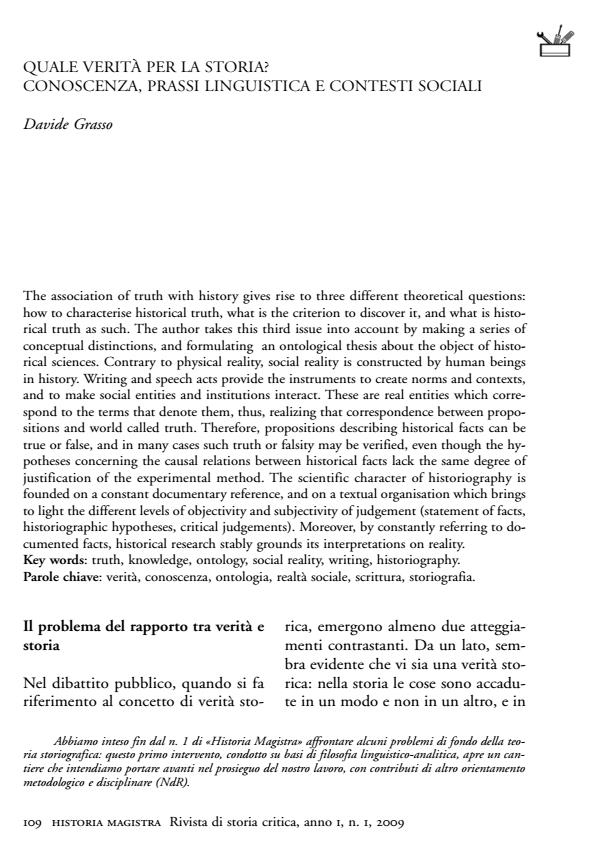Quale verità per la storia? Conoscenza, prassi linguistica e contesti sociali
Journal title HISTORIA MAGISTRA
Author/s Davide Grasso
Publishing Year 2009 Issue 2009/1
Language Italian Pages 13 P. 109-121 File size 136 KB
DOI 10.3280/HM2009-001011
DOI is like a bar code for intellectual property: to have more infomation
click here
Below, you can see the article first page
If you want to buy this article in PDF format, you can do it, following the instructions to buy download credits

FrancoAngeli is member of Publishers International Linking Association, Inc (PILA), a not-for-profit association which run the CrossRef service enabling links to and from online scholarly content.
Quale verità per la storia? Conoscenza, prassi linguistica e contesti sociali - The association of truth with history gives rise to three different theoretical questions: how to characterise historical truth, what is the criterion to discover it, and what is historical truth as such. The author takes this third issue into account by making a series of conceptual distinctions, and formulating an ontological thesis about the object of historical sciences. Contrary to physical reality, social reality is constructed by human beings in history. Writing and speech acts provide the instruments to create norms and contexts, and to make social entities and institutions interact. These are real entities which correspond to the terms that denote them, thus, realizing that correspondence between propositions and world called truth. Therefore, propositions describing historical facts can be true or false, and in many cases such truth or falsity may be verified, even though the hypotheses concerning the causal relations between historical facts lack the same degree of justification of the experimental method. The scientific character of historiography is founded on a constant documentary reference, and on a textual organisation which brings to light the different levels of objectivity and subjectivity of judgement (statement of facts, historiographic hypotheses, critical judgements). Moreover, by constantly referring to documented facts, historical research stably grounds its interpretations on reality. Key words: truth, knowledge, ontology, social reality, writing, historiography.
Davide Grasso, Quale verità per la storia? Conoscenza, prassi linguistica e contesti sociali in "HISTORIA MAGISTRA" 1/2009, pp 109-121, DOI: 10.3280/HM2009-001011